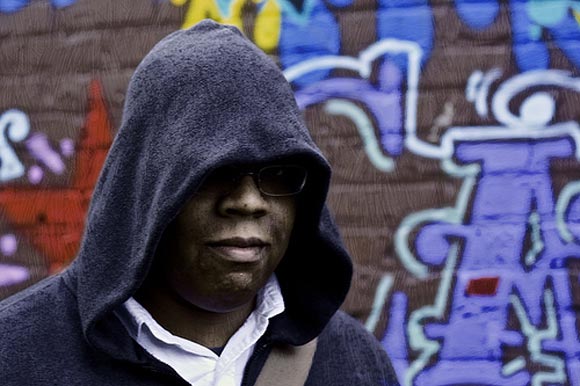Think GRI, think the Global Reporting Initiative in Amsterdam whose G3 framework has become the de facto standard for large businesses to report their sustainability against.
However there’s now a new GRI on the block, and I don’t mean the G4 framework which is due to be published in 2013.
The Glamis Research Institute is a Mauritius based business and academic research foundation and is part of the same group of companies as Glamis International, an education provider partnered with a number of UK academic and business establishments.
This institute has released its own sustainability model which, rather cheekily, it’s trademarked as the GRI Sustainability Model. To differentiate from the GRI, I’ll refer to the institute as GResI.
At first glance, both Glamis International and GResI raise certain concerns. They look like quite a small operation and the websites of both are sparse in places.
However the GResI Sustainability Model is worth looking at because it draws together various aspects in an approach I’ve not come across before.
ESG or CSR
To start with, the model is ESG based not CSR based. All the indicators are classified as being on one of four dimensions: environmental, social, governance or financial/economics.
While not particularly novel, I do find this intriguing for a business research organisation .. my experience is that many of these prefer to talk in the more flexible language of CSR, which allows them to look at peripheral subjects such as ethics and technology.
That’s not to knock GResI though. What’s starting to become obvious is that CSR, because of its broad-based approach, is starting to hold back sustainable investment. It might actually be good if business research companies started talking more narrowly about ESG issues, if only to strengthen the link between sustainable business and finance.
Furthermore, using their ESG + financials approach, GResI have put together three models which can be used to produce reports by company, industry and country, as below:
Company Sustainability
This is probably the most familiar type of sustainability measurement. The GResI Company Sustainability Model has around 200 indicators covering 18 separate sub dimensions. These include in-depth items such as lifecycle efficiency, resource usage, human capital development and community interaction.
Industry Sustainability
While traditional reporting regimes such as GRI tend to produce industry supplements, or industries produce their own reporting criteria, there has been very little work on any set of criteria to compare one industry with another.
The GResI Industry Sustainability Model follows the supplement line, with up to 20 sector specific indicators developed across the four dimensions. However there are some interesting ones which cut across industries, such as directors’ level of experience in an industry and an overall transparency score for each dimension.
Country Sustainability
Finally, GResI also produces a Country Sustainability Model. This has seven subdimensions to the main four, covering issues such as poverty, demographics, and economic partnership.
There is precious little in the way of country by country comparisons for sustainability, mainly because the whole area is so mired in politics even angels would fear to tread. However, that said it takes a brave organisation to go there, and GResI would appear to be such an organisation.
A pinch of salt, and sugar too
It’s easy to be sceptical about GResI and there is little substantive detail available on the sustainability models other than as outlined above. Their rather cheeky attempt to trademark GRI also gives a sense of unease.
That said, they do appear to be a genuine organisation and their overseas affiliation claims (most notably with the Edinburgh Business School and Heriot-Watt University) stand up to scrutiny.
So taken as a round, this new form of GRI is wholly welcome, because it breaks down the stovepipes which currently exist between business, industry and country sustainability.
As any good ecologist or systems theorist will tell you, nothing exists in isolation and all systems are interdependent. GResI are attempting to show this, both by formulating standalone industry and country sustainability models and by including the headlines from these into company reports.
This has to be a step in the right direction.
Picture Credit: Capt Hoodie by Kelly Bailey under CC Attribution License
A former CTO, Chris has a broad and varied background. He’s been involved with blue chips, consultancies & SMEs across a wide variety of sectors and has worked in Europe, the Middle East and Australia.
In 2007 he decided to combine his knowledge of business and IT with his passion for all things sustainable and has been busy writing ever since. However, his greatest ambition remains to brew the perfect cup of coffee.

Thank you for reviewing our organisation and research model. I would like to highlight that we are a very credible organisation and that any reference to associate Glamis Research Institute to ‘GRI’ is unintentional and any references will be rectified. We provide restricted details of our assessment model as it has taken an investment of hundreds of professional hours and we would like it to remain unique in many ways. I am grateful, however, that your review is balanced and should assist us in promoting the Sustainability agenda in business and especially Africa.
Kind regards,
Dhanesh Maraye
Managing Director
Thank you for your reply Dhanesh. That you have done so only increases the veracity of your organisation, as I’m sure you’re aware.
Thank you also for kindly pointing out the balanced nature of this post. There have been instances of other education organisations claiming academic links with the UK (most notably, the high profile case of IIPM in India http://careers360.com/news/6687-Uttarakhand-High-Court-quashes-IIPM-s-case-against-Careers360 ) so I’m sure you understand it’s wise to tread carefully.
That said, I really *really* do like the idea of including sectoral and national measures in a company’s report and I would like to wish you all best wishes in developing this and promoting sustainability in Africa.
Chris.